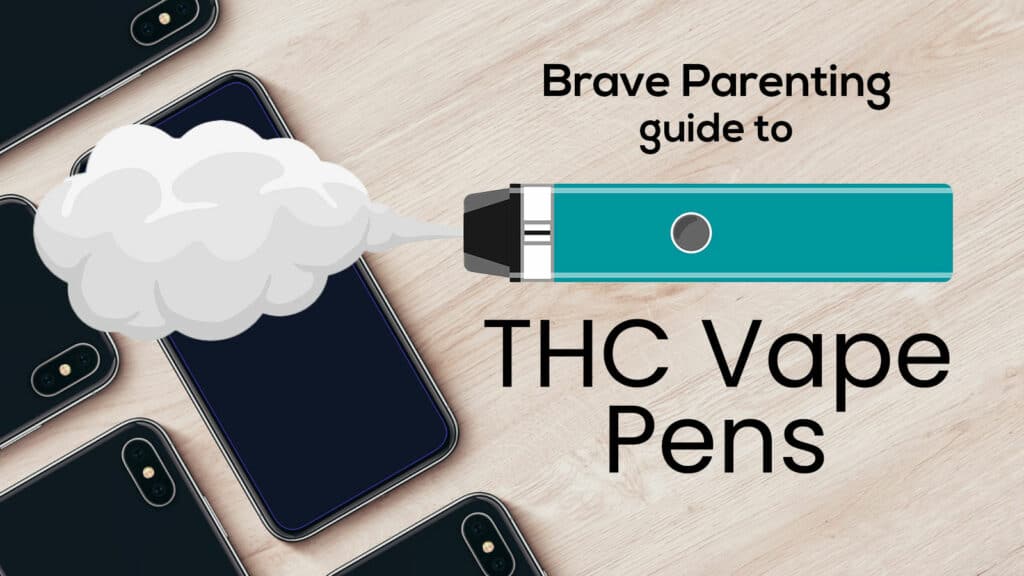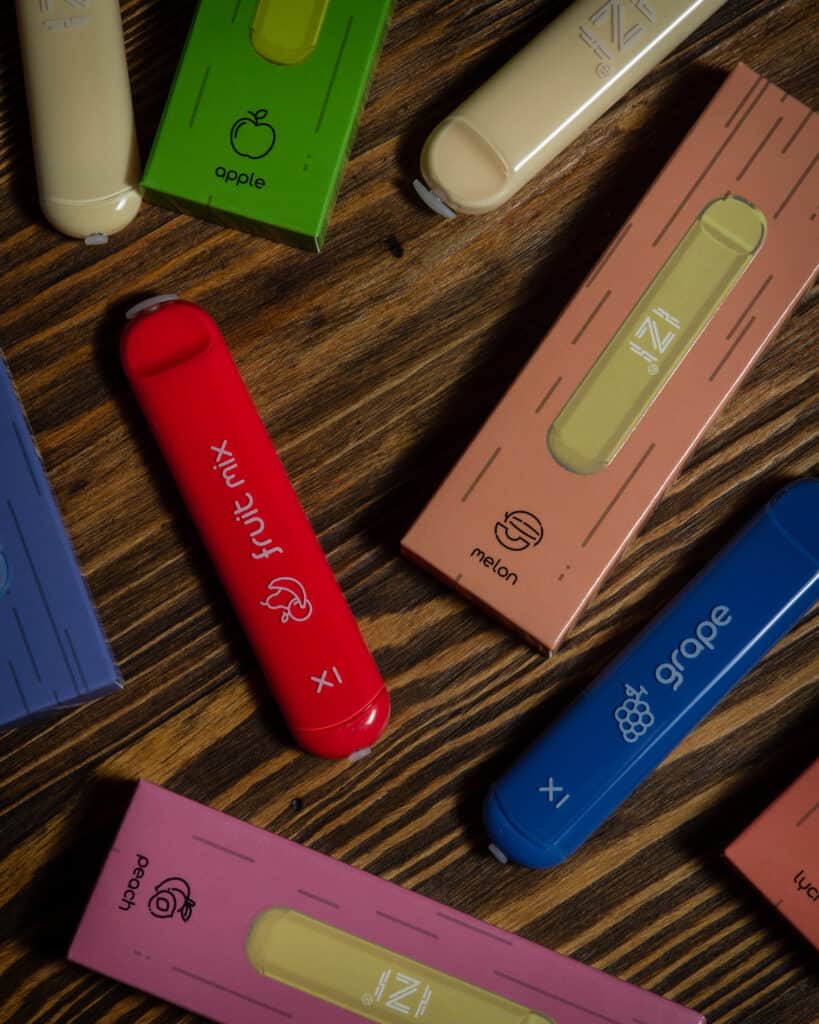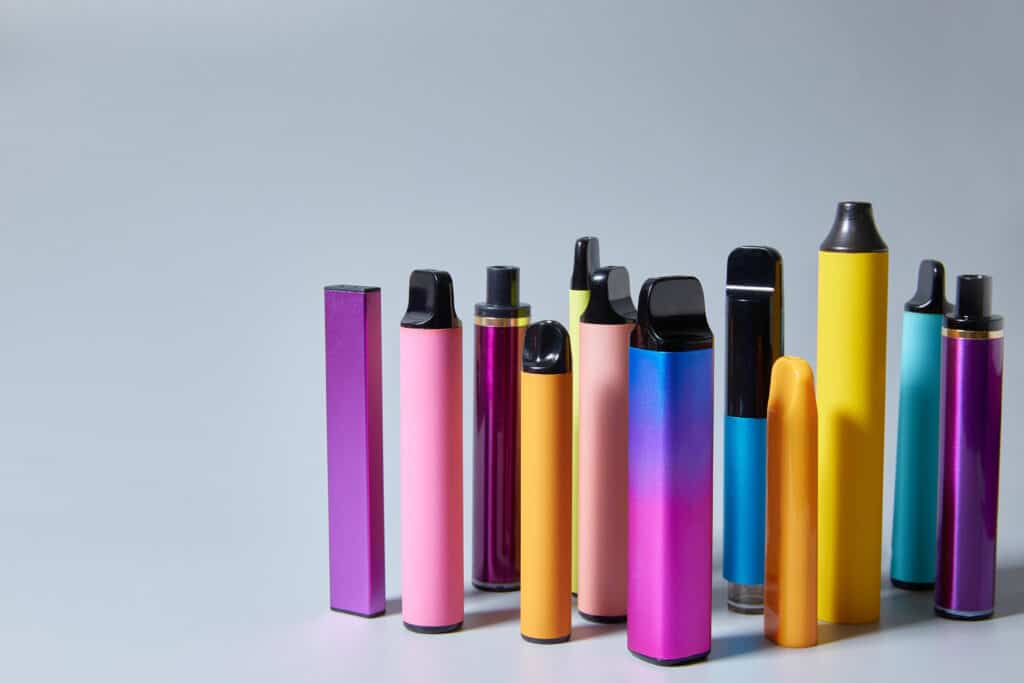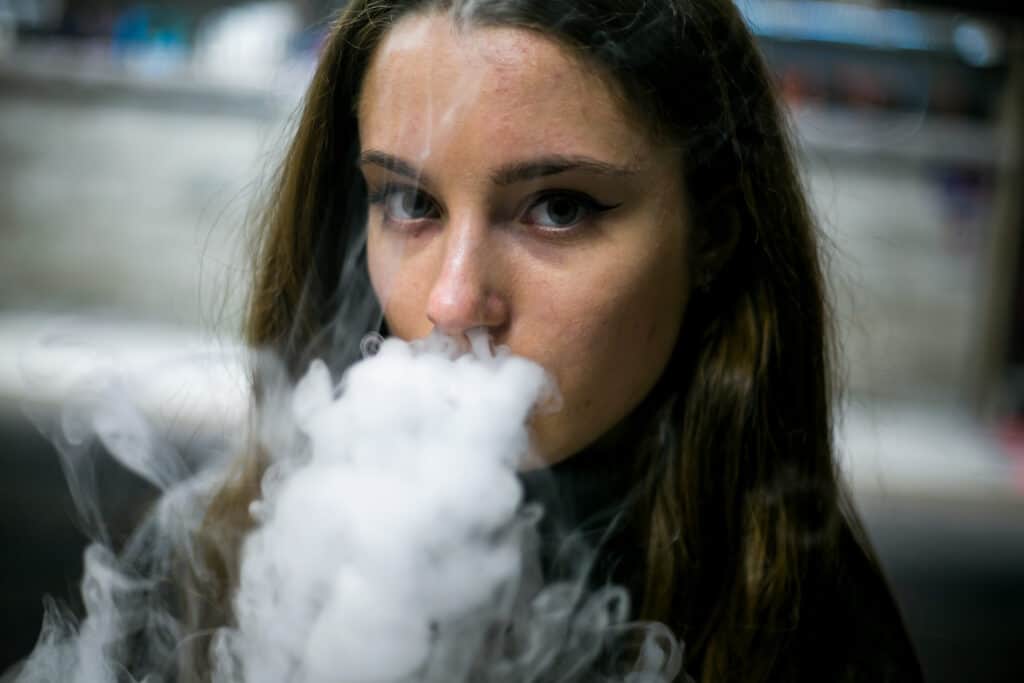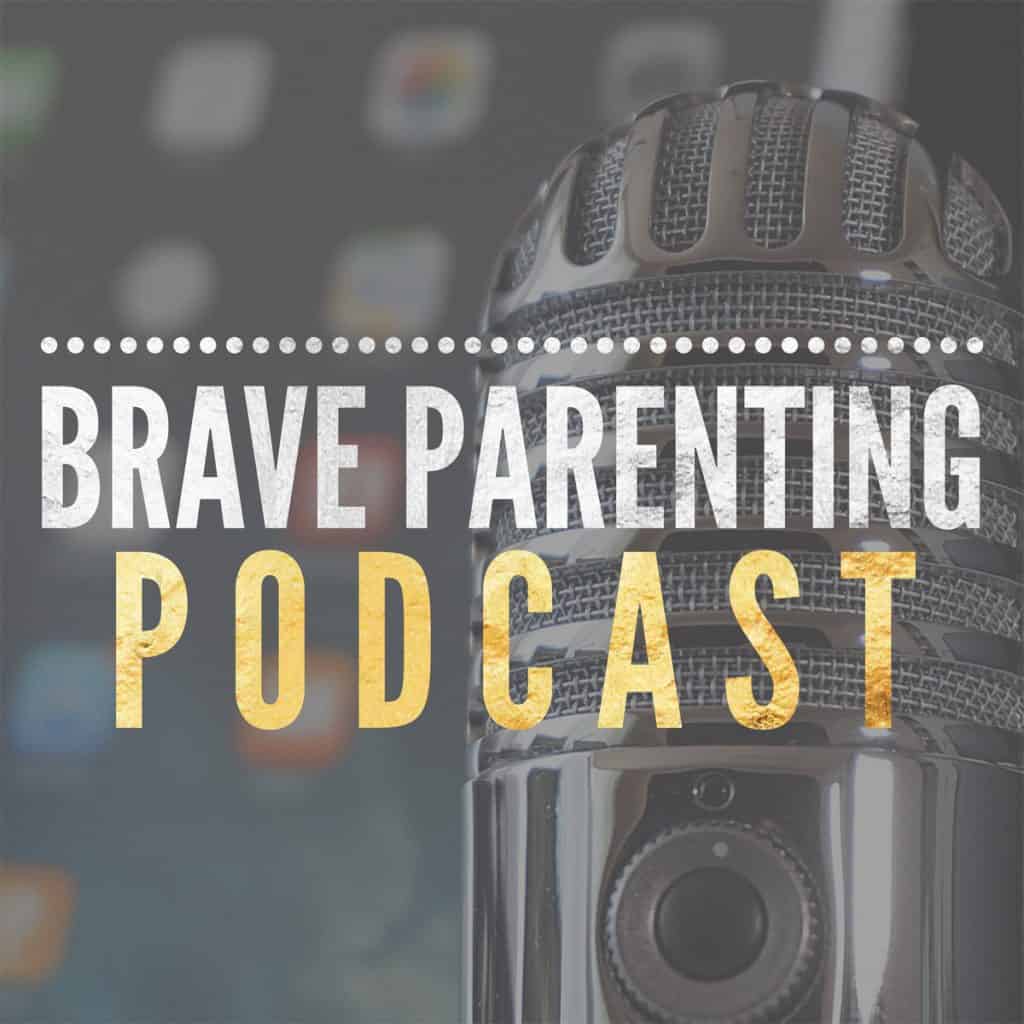The nature of the Brave Parenting ministry affords us insight into teen culture through our research of how they engage with smartphones and social media. We also have the opportunity to hear from parents on the front line.
There is a growing problem of teenage use and addiction to THC vape pens. It’s difficult to ascertain whether parents know it’s happening but don’t know how to deal with it – or – if they don’t want to know because that means they’ll have to deal with it.
We are by no means the first to notice this dangerous trend, but given our unique audience of parents who deeply care about what their children are exposed to and who seek to raise their kids in the knowledge and discipline of the Lord, it’s time for us to bring this into the light.
For anyone who has not followed the marijuana narrative over the past five years, let’s catch everyone up to speed.
A BRIEF HISTORY OF HOW THC BECAME “LEGAL”
- The 2018 Farm Bill removed hemp with THC concentration of no more than 0.3% from Schedule I of the Controlled Substance Act, thereby legalizing it and allowing its commercialized sale.
- This is what made CBD federally legal.
- Delta-8 THC is a psychoactive compound extracted from legal forms of the cannabis plant. It is naturally found in the plant but not in significant amounts; thus, the concentrated amounts are synthetically produced.
- The DEA stated that “All synthetically derived tetrahydrocannabinols remain Schedule I controlled substances,” which includes delta-9, but they did not clarify whether “synthetically derived” means synthesis and extraction of delta-8 THC from CBD. Delta-8 exploded in popularity because of this loophole.
- Since hemp-derived CBD is legal in most states, the CBD derivative delta-8 THC is also considered legal.
- The sale of delta-8 THC products is not limited to regulated marijuana dispensaries. Instead, they are sold by a wide range of businesses, such as gas stations, vape shops, convenience stores, and online shops.
TWO SIGNIFICANT FACTORS CONTRIBUTE TO THE TEENAGE EPIDEMIC
First, delta-8 has been promoted as a much safer alternative (“Weed Light” or “Diet Weed”) to delta-9, the illegal compound in the cannabis plant known to get you “high.” There are claims everywhere, from websites to TikTok videos, about its anxiety and pain-relieving properties without sedation and brain fog. Precisely what teens think they need.
Secondly, the accessibility and ease of procurement have placed almost no obstacles in the way of teens’ use. As an unregulated product, many vape shops will sell without checking or verifying the I.D. and age. Distribution in schools and towns where teens carry cash (or have smartphones with CashApp) is steady and seamless. Precisely what parents don’t think is happening.
As if the promotion of a “lighter” version of weed and the ease of access wasn’t enough – the fact that delta-8 is now “legal” (over 21) has made teens all in. “Legal” is the only proof they need that their actions aren’t wrong or dangerous (“It’s just like alcohol”). Many teens will even argue it is safer and healthier than the weed their parents messed around with when they were teens. Another fallacy promoted on social media.
DELTA-8 CONCENTRATION
Let’s set the record straight on this comparison.
Traditional “weed” or “pot” smoked by some in the 1960s to 1980s was less than 2% THC. It increased to 4% in the early 1990s, and between 1995-2015, there was a 212% increase in THC concentration ranging from 17-28%.
And if those numbers aren’t shocking enough, the oils, dabs, edibles, etc. of delta-8 today can contain up to 95% THC.
1970s: 2% THC
2023: 95% THC
This increase is highly significant. And certainly not without adverse effects. So when older adults argue this is no different than when they were young (so let the kids be kids) we must recognize we are barely even comparing the same drug.
RISKS OF HIGH POTENCY THC
In 2021, the CDC issued an emergency health warning about delta-8 THC products. Some of their concern was the influx of unregulated products in the market where delta-8 could be mistaken for CBD or edible products mistaken for regular snacks and candy by children. The Federal Trade Commission issued a cease and desist to companies selling delta-8 THC products in nearly identical packaging to children’s food (such as Pop-Tarts and Oreos).
Furthermore, because the FDA does not regulate or evaluate these products, inconsistent labeling and impure manufacturing can lead to products containging unknown chemicals or even delta-9 residue. The FDA has issued its own public health warnings on delta-8’s safety. Research testing done on 27 delta-8 products found that none of the 27 products tested had the amount of delta-8 claimed. Even worse, they also contained harmful byproducts like heavy metals (lead and mercury).
This point cannot be stressed enough – these products have zero regulation. Considering this, an argument that they are “legal” and purchased from reputable vape shops (versus on the street by a dealer) is nonsense.
Adverse effects from delta-8 THC intoxication, as reported by the CDC, include hallucinations, vomiting, tremor, anxiety, dizziness, confusion, and loss of consciousness. But a few other elephants also sit in the room that must be addressed: mental health and addiction.
MENTAL HEALTH & ADDICTION
Aside from the impact on the developing brain, such as decreased problem-solving, reduced attention span, and poor memory, delta-8 THC has been increasingly correlated with risks of psychosis and exacerbation of anxiety, depression, and suicidal ideation. Research has also shown that men who regularly use cannabis are at greater risk of schizophrenia.
The marijuana of old was long thought to be non-addictive because there was no withdrawal syndrome. This is not the case with high-potency delta-8 THC. Now, withdrawal symptoms reported include increased anger, irritability, depression, restlessness, headache, loss of appetite, insomnia, and severe cravings for marijuana. Studies have shown that the younger you start using THC, the more often you use it, and the higher the potency, the greater the risk of becoming addicted.
And, for what it is worth, research has also demonstrated an average 8-point IQ loss with early persistent teen use of marijuana.
HOW DO I KNOW IF MY TEEN IS USING DELTA-8 THC?
Every parent feels the default, “Not my kid! My kid would never….”
We get it, but this problem crosses over into every genre of teenage life. If you suspect something is off with your teen but cannot put your finger on it, it is worth a little time investigating the possibility of THC.
Most parents would not recognize disposable delta-8 THC pens if they found them in their kids’ bedrooms. Therefore, the first item of business is to look them up on Google so you know what you’re looking for. Here are a few:
Second, most vape pens require a charger in order to vaporize the liquid inside. Be on the lookout for missing charging cords from around your home. Look in your child’s room to see if there are extra. Also, look out for stripped charging cords with exposed wires. This is a workaround when the charging cable on hand doesn’t fit the pen, teens will “hot-wire” a charge.
Third, drug test them. Urine THC tests can be bought inexpensively from Amazon or your local pharmacy. Because the metabolites of THC are stored in adipose tissue (fat), tests can return positive for up to 4-6 weeks after use (depending on how much is consumed).
It’s important to note you are not likely to stumble upon discovering your teen is vaping THC. Asking them forthright will likely result in a lie. Even the teen who claims to be a follower of Christ but has fallen into this temptation will likely lie, recognizing their sin and covering it with another. Additionally, scanning their texts to find proof would be a daunting and likely unsuccessful venture. Teens know all too well how to use slang when referring to illegal substances and are quick to delete incriminating evidence.
However, one caveat is that it’s possible you’ll find a picture in your teen’s photo roll of them vaping. For whatever youthful reason, teens like to take pictures of themselves vaping. If they forget to hide it or they don’t think you’ll look, you may find evidence there.
WHAT DO I DO IF I FIND OUT MY TEEN IS VAPING THC?
Act quickly and decisively. Parents are fighting against a cultural narrative advocating this as totally acceptable; therefore, your stance has to be strong.
Take away their current phone. Text and social media DMs are where drug dealing occurs. If they cannot live without a phone replace it with a kid-safe phone such as Pinwheel, where parents can regulate the contacts and monitor incoming texts. This helps identify who is selling/dealing the vape while at the same time cutting off communication with that person. Also, cut off or strictly limit their online access through home computers or video game consoles.
Can deals still occur in person at school? Sure, but we’d also recommend restricting access to money such as cash, debit card, and money apps. Someone may give them a pen for free, which you cannot stop. And depending on the circumstances, pulling them out of school may be appropriate.
Take away their driving privileges. If your teen has a car and they test positive for THC, they should no longer be allowed to drive until they produce a clean drug test. This is a natural consequence since they could possibly drive under the influence and endanger others.
How will they get to school and work? You will need to drive them or make them ride the bus if that is an option. This is an inconvenience and sacrifice on your part, but chances are they will hate it more than you will be inconvenienced. Another natural consequence.
Implement disciplinary consequences. Restrict social activities. Require community service. Request a 1000-word essay on the dangers of THC. Everyone has their own disciplinary methods to which they know their teen will respond. Use them, and don’t back down.
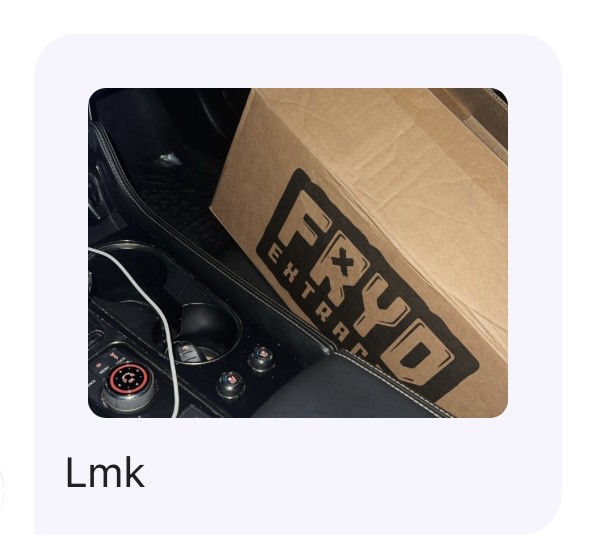
IS THIS REALLY THAT BIG OF A DEAL?
A teen who tests positive or is caught with a THC vape pen will likely argue that it was only once, or it isn’t theirs, or they will contend that it is not that big of a deal. But it actually is, do not be fooled!
On its most basic level, it is illegal. Nicotine and THC products are federally restricted under the age of 21. While minor possession of a delta-8 pen is often a misdemeanor, many states will treat it as a felony because they cannot determine the difference between delta-8 and delta-9, so they default to the worse of the two. Moreover, driving under the influence of marijuana is illegal (even if it is legal to use in your state). Some states have zero tolerance for driving under the influence of THC, and the resulting penalties range from fines to suspended licenses, jail time, or felony charges.
It can also not be ignored that delta-8 THC vape pens are not evaluated for safety. Without regulation, vape pens could easily be laced with other substances, even fentanyl. No parent wants to wake up to find their teen dead from unknowingly consuming fentanyl. That’s a big deal! That risk notwithstanding, the unknown chemicals used to produce delta-8 can be of significant risk to the body.
And frankly, this is not the weed of parents’ past. The extremely high potency is leading to more addiction. Tolerance occurs, which could be a gateway into other, harder substances such as cocaine, meth, heroin, or LSD. Like all pleasure-producing substances and behaviors, over time, more and greater is needed to achieve the same result. Adults may consume delta-8 for ‘recreational use’ (1-2 pens per month), but teens will do that much in one night – or even in one long breath.
Finally, as this is written for Christian parents, we are biblically called to live differently – which should also be a big deal, but many have grown complacent. Our end goal of parenting is not happiness, it is holiness.
THE BIBLICAL PERSPECTIVE
Just because Scripture does not speak about mind-altering drugs or marijuana specifically does not mean God has nothing to say about its use. The Word of God is absolutely sufficient in this area.
The apostle Paul had to deal severely with the church in Corinth, who returned to their licentious and gluttonous ways after Paul’s departure. In his first letter to them, he speaks clearly about anything other than Christ mastering the life and body of a believer. “All things are lawful for me, but not all things are profitable. All things are lawful for me, but I will not be mastered by anything.” (1 Cor 6:12).
Even if delta-8 was lawful for your teen, do you want them to be mastered by it? What possible profit could there be from a mind-altering drug that easily serves as a coping mechanism during an age when they need to learn perseverance and resilience? Would we ever let a friend become an alcoholic while coping with a difficulty just because it’s legal for them to drink? Never!
But it is, in fact, unlawful for them. The legality factor is important because the law is in place to protect the developing brain under the age of 21. And we are all biblically obligated to obey the law of our land. Romans 13:1 tells us that everyone is subject to governing authorities, for God establishes them for such purpose.
Furthermore, in Peter’s first epistle, which he wrote to instruct believers how to faithfully navigate life in an unbelieving society, he tells the believer to cast their anxiety on Christ because He cares for them (1 Pet 5:7). Immediately following this admonishment, he provides a warning. “Be sober-minded; be watchful. Your adversary the devil prowls around like a roaring lion, seeking someone to devour” (5:8)
And what does the enemy do when teens are not sober or watchful? Get them hooked on drugs? Make them numb? Worse, the enemy devours them. He comes to steal, kill, and destroy; at 13 or 16, a lot can be stolen, killed, or destroyed. Therefore, we must train our teens that “weed” (delta-8) is not the answer to anxiety. Just as we would never allow them to self-harm as a coping mechanism for anxiety, vaping THC should never be allowed or tolerated as it will only lead to more anxiety because, in this way, the enemy gains his foothold.
Finally, the most common pushback we hear from parents is their concern that drug testing their teens would show that they don’t trust them. Let us ask this, who are you serving? Paul writes, “For am I now seeking the approval of man, or of God? Or am I trying to please man? If I were still trying to please man, I would not be a servant of Christ” (Gal 1:10). This is the question you must ask yourself – are you fearing God or fearing your teen? Because if you fear your teen’s feelings, you lack the wisdom needed to parent, for the fear of God is the beginning of wisdom (Prov 1:1). Not only that, but your disobedience to Christ also discredits your witness as a believer.
There is no biblical command for a parent to trust their child at all costs. In fact, parents are instructed to trust the Lord (Prov 3:5) and not to provoke the child (Col 3:21), but they are never commanded to be their child’s friend and trust explicitly. This is a lie that way too many parents believe. One narcotics police officer who spoke at an event on vaping said, “We must love our kids more than we trust them.” That is good advice because loving them is ensuring that the enemy has not taken them captive. Loving them is training them how they should go and protecting their brain development from harmful drugs and chemicals.
It is not loving to allow teens to live numbed and addicted.


